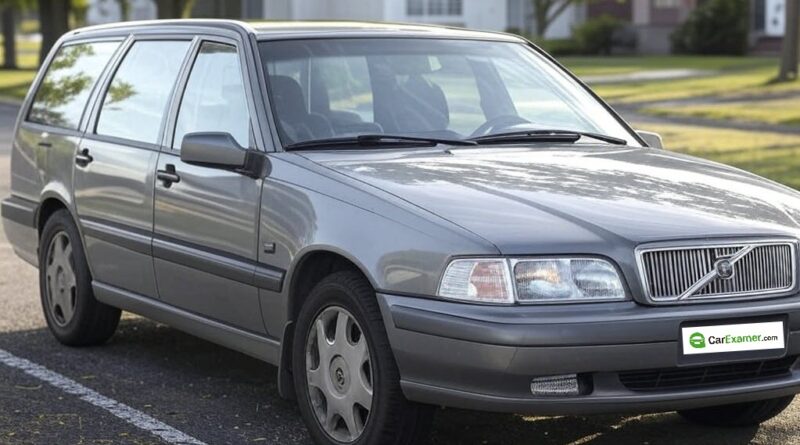Volvo V70 Common Problems: What To Know Before Buying
The Volvo V70 is one of those cars people tend to hang onto. Why? Because it’s practical, comfortable, safe, and built to last. It’s a proper workhorse of a car — whether you’re hauling kids, dogs, tools, or just love a good road trip.
But like any older car, the V70 has its fair share of quirks. So if you’re thinking of buying one, here’s a straightforward guide to the most common Volvo V70 problems — and what to check before you hand over your cash.
1. Random Electrical Issues
One of the most common complaints from V70 owners? Electrical gremlins. Not always serious, but definitely annoying.
🔌 You might notice:
- Warning lights flashing on and off
- Central locking being fussy
- Windows or radio acting up
These issues are often down to ageing sensors or worn-out wiring. A quick scan at a garage usually tells you what’s up.
2. Jerky or Slow Gear Changes (Auto Gearbox)
Some older V70s, especially automatics, can develop gearbox issues over time — especially if the transmission fluid hasn’t been changed regularly.
⚙️ Things to feel for:
- Jerky shifting
- A delay when you put it in drive
- Hesitation when accelerating
The fix might be as simple as a fluid change, but long-term neglect could mean more serious (and expensive) repairs.
3. Clunky Suspension Noises
The V70 is built for comfort, but with age, the suspension system can start to feel a little tired — especially if the car’s been through lots of potholes or carried heavy loads.
🛞 Watch out for:
- Clunks or rattles over bumps
- Uneven tyre wear
- Steering that feels vague or floaty
Bushes, control arms, and shocks are the usual suspects here — not a dealbreaker, but worth checking.
4. Fuel Pump Problems
Some owners have reported fuel delivery issues, usually related to the fuel pump or pressure sensors.
⛽ You might notice:
- Struggling to start
- Sudden loss of power
- Engine cutting out randomly
These issues are more common on high-mileage cars and often show up gradually — so ask about fuel system repairs in the service history.
5. Timing Belt on Diesels — Has It Been Done?
If you’re looking at a diesel V70, the timing belt is one thing you absolutely need to ask about.
⏱️ Why?
If it snaps, it can do major engine damage. Volvo recommends changing it around 100k–120k miles or every 10 years. If the seller can’t show it’s been done, budget for it ASAP.
6. Weak Air Con
After a few years, the air conditioning might not be as icy as it once was.
❄️ Signs of trouble:
- Blows warm air when set to cold
- Clicking noises behind the dash
- Smells a bit funky
Could just be a re-gas, or might point to a worn compressor or a blower motor issue.
7. Worn Bushes & Engine Mounts
Rubber parts like engine mounts and suspension bushes wear out over time — it’s just part of getting older.
🔧 What to feel for:
- Vibration at idle
- Thudding when you pull away
- General “looseness” when driving
These aren’t expensive to fix, but can make a big difference to how the car feels.
So, Is the Volvo V70 Still a Good Buy?
Absolutely — if it’s been looked after. The V70 is known for reliability and comfort, and with the right care, it can last well past 200,000 miles.
✅ Check the service history (especially for timing belt and gearbox work)
✅ Take it for a proper test drive — listen and feel for anything odd
✅ Get a pre-purchase inspection if you’re not sure — services like Carexamer make it easy
Final Thoughts
The Volvo V70 is a solid, no-nonsense estate that still holds its own today. It’s roomy, dependable, and feels like a car built with care. Yes, there are a few known issues — but most are totally manageable, especially if you go in knowing what to look for.
So take your time, do your checks, and you could end up with a brilliant car that’ll serve you well for years to come.
Buying a used VW. Buying used vauxhall, BMW, Jaguar, Ford, Volvo, Range rover, Bentley, Aston Martin, Porsche, Ferrari, Lamborghini, Maserati, Hyundai, Tesla, Honda, Pagani

